Understanding citizenship Worksheets for Ages 4-9
6 filtered results
-
From - To
Welcome to our "Understanding Citizenship Worksheets for Ages 4-9"! This engaging collection is designed to help young learners grasp the essential concepts of citizenship in a fun and interactive way. Our worksheets promote critical thinking and foster a sense of community by introducing topics such as responsibilities, rights, and respect for others. Each activity is age-appropriate, providing opportunities for creativity, discussion, and exploration. Ideal for classrooms or at-home learning, these resources will help children develop a strong foundation in citizenship values, preparing them to be caring and active members of their communities. Explore our worksheets to inspire the next generation of responsible citizens!
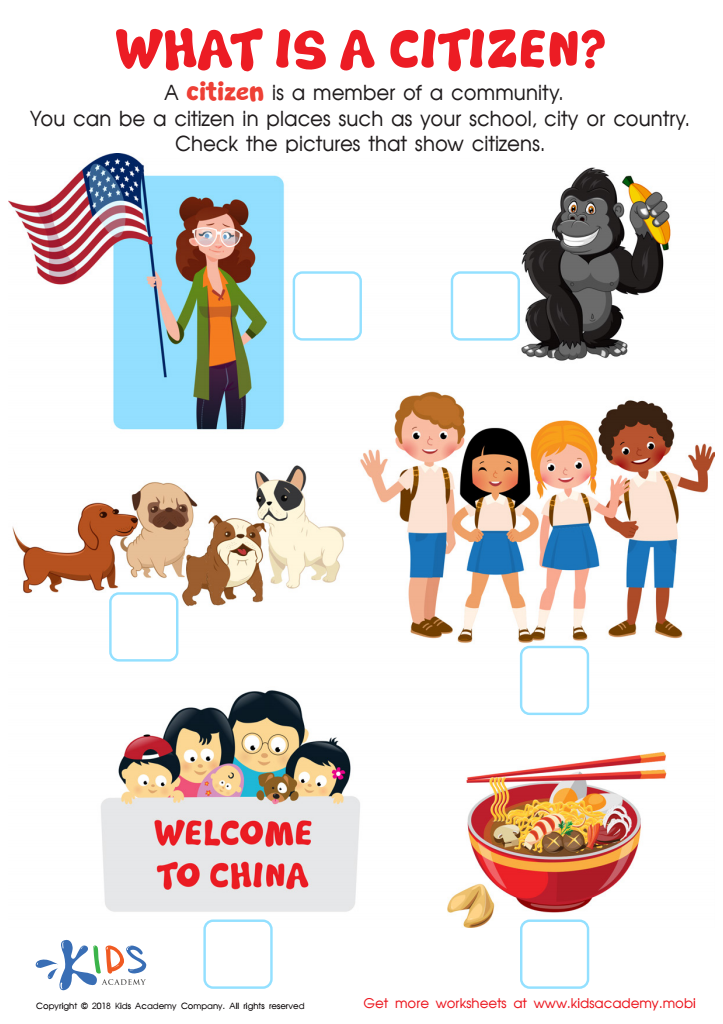

What is a Citizen? Worksheet
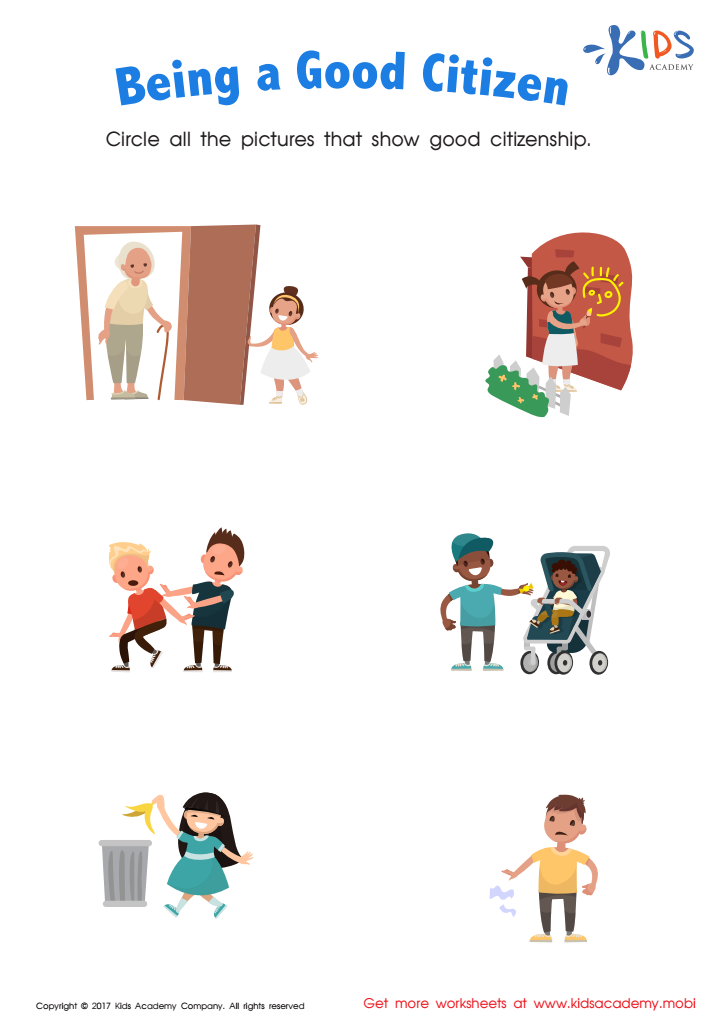

Being a Good Citizen Printable
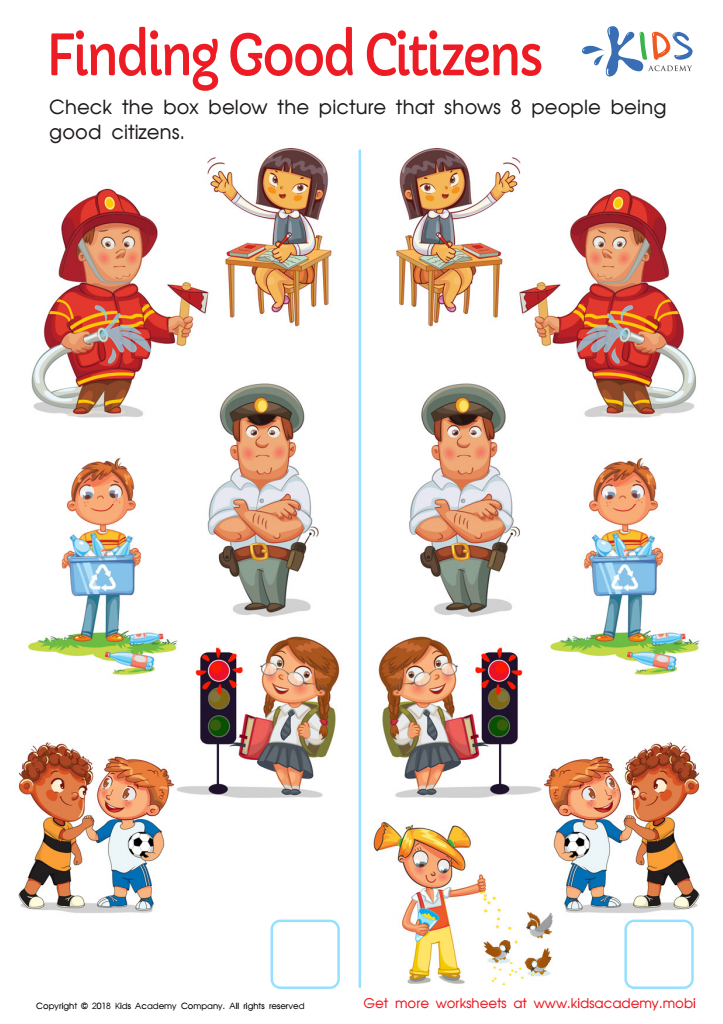

Finding Good Citizens Worksheet
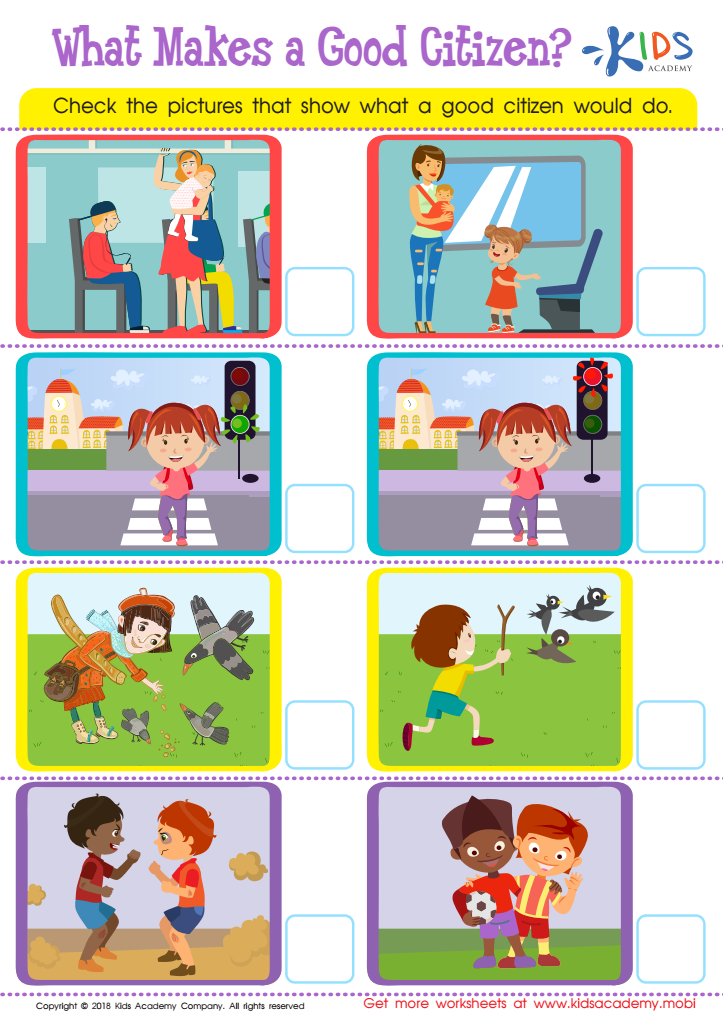

What Makes a Good Citizen? Worksheet
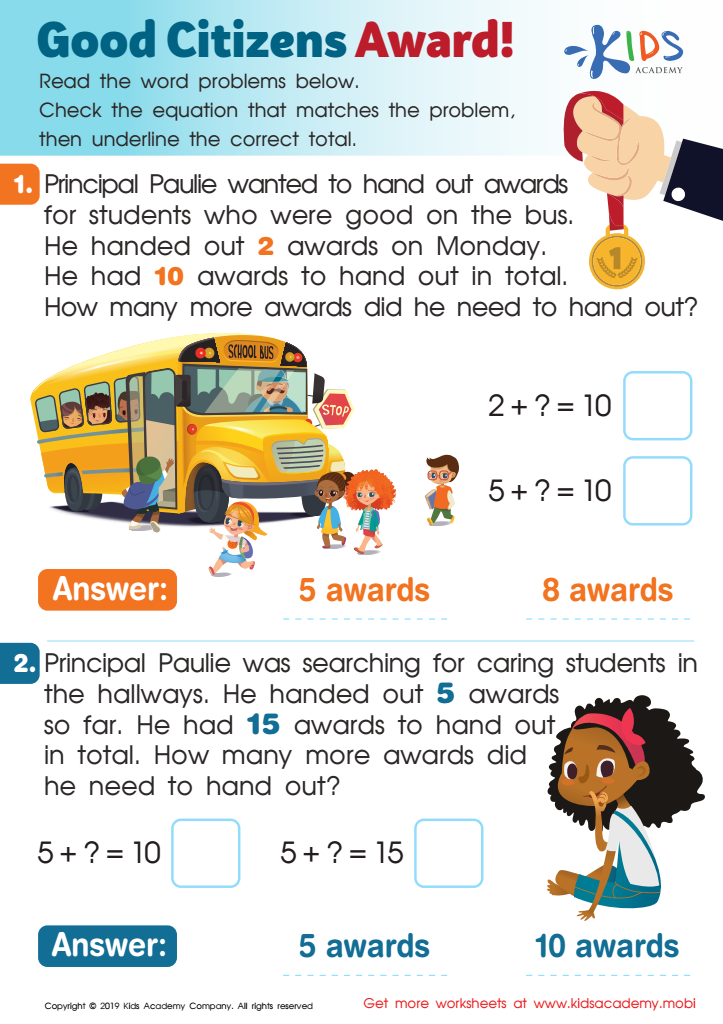

Good Citizens Award! Worksheet
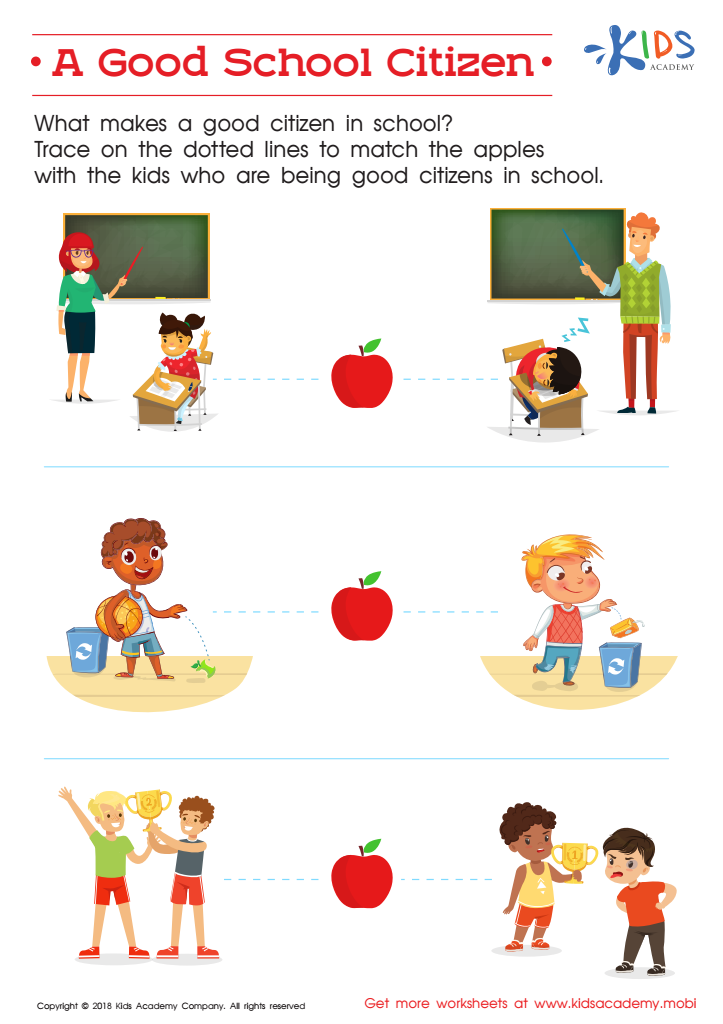

A Good School Citizen Worksheet
Understanding citizenship is crucial for children aged 4-9 as it lays the foundation for their identity and social responsibility. At this formative stage, children are developing their sense of self and their place within the community. Teaching them about citizenship cultivates essential values, such as respect, empathy, and fairness, which help them interact positively with peers and adults.
By introducing concepts of belonging, community, and rights at a young age, parents and teachers empower children to recognize their roles as active participants in society. This understanding encourages civic engagement and activates children's voice in addressing issues that matter to them, fostering critical thinking skills that are vital for their development.
Moreover, discussing citizenship topics like diversity, inclusion, and environmental stewardship promotes an appreciation for differences and responsible behaviors towards the planet. When children grasp these ideas, they develop positive attitudes towards collaboration and conflict resolution.
Encouraging conversations about citizenship also assists in social-emotional learning. Children learn how their actions affect others, ultimately leading to a more empathetic generation. Overall, prioritizing citizenship education for young children can significantly shape their future as engaged and responsible citizens.

 Assign to My Students
Assign to My Students




















